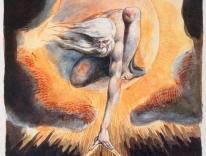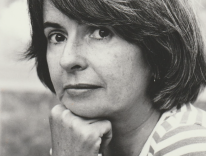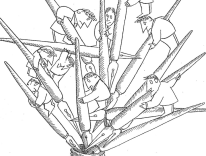It's a curious assertion by the pope, it seems to me, but it is the headline in the ZENIT report on Benedict's address to the new ambassador to the Holy See from the Philippines. Here's the full quote:
"The Catholic Church is eager to share the richness of the Gospels social message, for it enlivens hearts with a hope for the fulfilment of justice and a love that makes all men and women truly brothers and sisters in Christ Jesus. She carries out this mission fully aware of the respective autonomy and competence of Church and State. Indeed, we may say that the distinction between religion and politics is a specific achievement of Christianity and one of its fundamental historical and cultural contributions."
I know Ratzinger is a great proponent of the "hermeneutic of continuity" rather than "rupture," but this statement seems to elide a lot of history. Like, a lot. What am I missing? Any ideas on his thinking? As I write this, I am reflecting on Ratzinger's passion for Augustine--I think of Benedict as a church "primevalist"--so perhaps that's the well he's drawing from. Ressourcement, toujours ressourcement!


